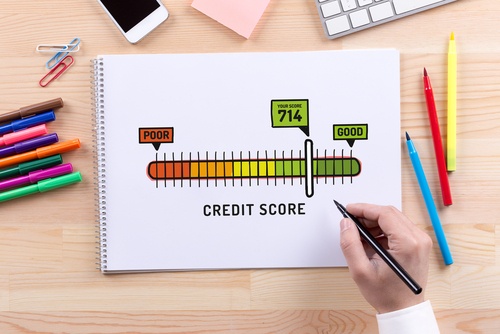Imagine this—you apply for a loan with confidence, only to find that your CIBIL report shows something called DPD. At first glance, it might look like another confusing financial term. But here’s the truth—DPD in CIBIL plays a big role in how lenders judge your reliability as a borrower. It simply means “Days Past Due”, which reflects how many days you’ve delayed paying your dues. And as small as that number may look, it can have a big impact on your financial credibility.
Think of it this way—your CIBIL report is a snapshot of your financial behaviour. While your overall score summarises your history, DPD provides the finer details—whether you’ve been punctual or whether delays have crept in. Understanding how DPD works, and how it connects with the CIBIL score range, can help you take control of your credit profile and even increase CIBIL score over time.
What exactly does DPD in CIBIL mean?
DPD in cibil is short for “Days Past Due”—it’s the number of days by which you have missed or delayed a payment. So if you miss your EMI by 10 days, your DPD will reflect that. The report usually displays entries such as:
- “000” – meaning you paid on time
- “XXX” – meaning no data was reported that month
- A number such as 30, 60, or 90 – showing the number of days overdue
While one or two minor delays may not completely ruin your score, repeated or long delays send a strong negative signal to lenders. And here’s why… it tells them that lending to you carries risk.
How DPD connects to your CIBIL score range
Your DPD history and your CIBIL score are closely linked. The CIBIL score range runs from 300 to 900. Generally:
| CIBIL Score Range | Creditworthiness | Loan Approval Chances |
|---|---|---|
| 750–900 | Excellent – Very reliable | Very high |
| 700–749 | Good – Low risk | High |
| 650–699 | Average – Some risk | Moderate |
| Below 650 | Poor – High risk | Low |
Now, let’s connect this with DPD. Even if you’re in the higher bracket today, frequent entries of overdue payments can drag your score down. The more consistent your “000” entries, the stronger your credit report looks.
Why should you check CIBIL score regularly?
Imagine if your DPD records show a delay you didn’t actually make—maybe a technical error, or a misreporting from your lender. If you never bother to review your report, you’d never know. That’s why it’s smart to check CIBIL score at least twice a year.
When you review, pay attention not just to the three-digit score but also to the details under DPD. If you spot inaccuracies, raise a dispute with CIBIL immediately. A corrected report could make the difference between getting approved at a low interest rate or being turned away.
How to manage DPD and increase CIBIL score
The good news? DPD isn’t permanent. Over time, with consistent repayments, older delays matter less. Here’s how you can manage it better and gradually increase CIBIL score:
– Always pay EMIs and credit card dues before the due date—set reminders or auto-debit mandates
– Avoid minimum payments on credit cards—pay in full wherever possible
– Keep your credit utilisation low (under 30–40% of your card limit)
– Clear off any overdue accounts quickly—even if it means part-prepayments
– Don’t apply for multiple loans at the same time—it signals financial stress
Think of it as rebuilding trust. Every “000” entry you add strengthens your profile and pushes your score upwards.
DPD in real life – why lenders pay attention
When you apply for a loan, lenders don’t just see your score. They dig into the report. Two applicants with the same score of 720 may not be seen equally. If one has a clean DPD history and the other shows repeated 30 or 60-day delays, the first applicant looks much safer.
This is why lenders often say “the report matters more than the score.” And they’re right—because DPD tells the story behind the number.
Wrapping up – your next steps
To sum it up, DPD in CIBIL is more than a technical detail. It reflects how disciplined you’ve been with repayments—and that discipline directly shapes your score. By learning to read those numbers and acting on them, you can protect your profile and gradually move higher in the CIBIL score range.
So here’s the answer—if you want to keep your borrowing options wide open, make it a habit to check CIBIL score regularly, fix errors quickly, and aim for “000” entries across the board. Over time, these habits will naturally help you increase your CIBIL score and keep lenders confident in your ability to repay.

